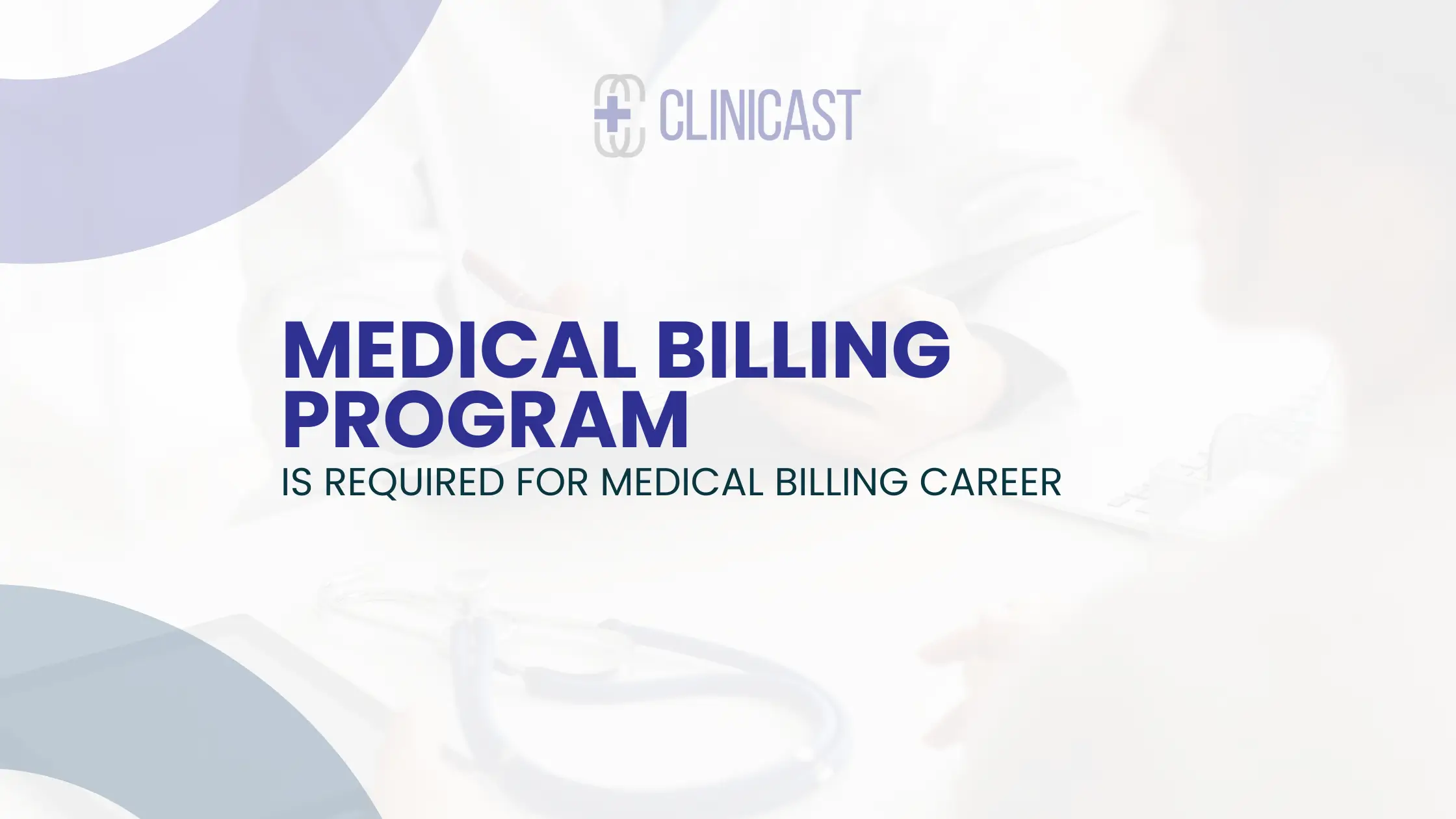With the recent technological improvement in the healthcare sector, medical billing programs and certification for the billers and coders of the future have become a compulsion. Medical billing is undoubtedly an in-demand career field and has great exposure to working with insurance companies, patients, healthcare organizations, research firms, private practices, etc. If you are pursuing a medical career, you should be preparing yourself to consider what coding certification is best for you to continue.
According to Pen Foster’s Medical and Billing Program instructor, Diana Murphy;
“An individual working on getting their certification in coding and billing shows they are the professional a medical company would benefit from having on their team. The medical field needs individuals with knowledge of billing and coding and understanding the insurance world, ensuring proper reimbursement on claims.”
In most medical jobs and career fields, a medical billing certification is not necessarily required. However, many times having a certification or the billing program provides you with an edge. Employers prefer hiring professionals who are certified in medical and billing coding. Being a medical billing certified professional has a valuable impact on what jobs you qualify for, how much money you can make, and how your career would progress.
As there is multiple billing and coding certification you can opt-out. But before you select one, you should see which one fits your role in the future. Learn here the pros and cons of a medical billing program to make an informed decision.
Types of medical billing program and certifications

Types of medical billing program and certifications
Medical billing and coding are two important aspects of the medical industry. Billing programs and certifications can give you the skills you need to work in this field.
There are many different medical billing programs and certification options available. Some programs may be completed online, while others may require you to attend classes in person. Some medical billing certification programs may even offer both options.
The best way to find the right medical billing program or certification for you is to research your options and find the one that best fits your needs. Once you have found a program or certification you are interested in, be sure to check with your state’s Board of Pharmacy to see if the program is accredited.
The most common medical billing certification is the Certified Professional Coder (CPC) certification, which is offered by the American Academy of Professional Coders (AAPC).
These programs typically range from 6-12 months in length and cover topics such as medical terminology, anatomy and physiology, insurance billing and coding, and medical office procedures. After completing a medical billing and coding program, students can sit for the CPC exam to earn their certification.
Individuals who are interested in a career in medical billing and coding can find more information on medical billing programs before opting for one. Here are some programs to look for;
Certified Billing and Coding Specialist (CBCS)
The Certified Billing and Coding Specialist (CBCS) Exam is a certification examination administered by the National Healthcare Association (NHA). The CBCS Exam is used to measure an individual’s knowledge of medical billing and coding. The examination is comprised of 125 multiple-choice questions that cover a range of topics, including coding systems, medical terminology, anatomy, and physiology.
To be eligible to take the CBCS Exam, candidates must have a high school diploma or equivalent and must have completed a medical billing and coding program that has been accredited by either the Commission on Accreditation for Health Informatics and Information Management Education (CAHIIM) or the American Health Information Management Association (AHIMA).
As taking a CBCS exam, you will be responsible for correctly coding and billing insurance companies and government agencies for medical procedures and services.
Certified professional coder (CPC) exam
The CPC® Exam is a rigorous computer-based examination that covers the essential knowledge and skills required to perform medical coding professionally. The exam is offered by the American Academy of Professional Coders (AAPC) and is the gold standard in medical coding certification.
The exam covers a wide range of topics, including anatomy, physiology, medical terminology, coding guidelines, and reimbursement systems. The exam is based on real-world scenarios and requires critical thinking to select the correct answer.
To be eligible to take the CPC® Exam, candidates must have completed a medical coding program from an accredited institution or have equivalent work experience. Candidates must also adhere to the AAP C’s Code of Ethics.
The CPC® Exam is a challenging exam, but with proper preparation, candidates can pass the exam and earn a successful coding career.
Certified coding associate (CCA) exam
The CERTIFIED CODING ASSOCIATE (CCA) credential is the first step in a journey toward a successful career in medical coding. To earn the CCA credential, candidates must successfully pass an accredited, standardized exam that assesses their knowledge of classification systems, coding guidelines, and the abstraction of medical records in both inpatient and outpatient settings.
The CCA exam is a multiple-choice exam that consists of 90-115 questions. Candidates have three hours to complete the exam, and the passing score is 70%. The CCA exam is offered in both English and Spanish.
To register for the CCA exam, candidates must create an account on the American Health Information Management Association (AHIMA) website. The cost of the exam is $199 for AHIMA members and $299 for non-members. This is one of the programs that billers and coders should take at the start of their careers and there’s no age limit for the test.
Difference between CBCS, CPS, and CCA exam
Achieving a medical billing and coding certification can be one of the greatest moves for your medical billing career. Certainly, you can take as many exams as you like to ace in the field and add value to your resume. However, they can be expensive and can cost you hundreds of dollars.
Employers see what benefit your certification or qualification can provide to their organization. Considering the differences between CBCS, CPS, and CCA exams, they all are used to assess a student’s knowledge in a particular subject. So, what is the difference between these exams? Well, CBCS assesses a student’s knowledge of the clinical aspects of a subject, while CPS assesses a student’s knowledge of the psychological aspects of a subject. CCA, on the other hand, assesses a student’s knowledge of the administrative aspects of a subject.
All three require a minimum age limit of 18 with a high school diploma or the education equivalent.
Conclusion
The medical and billing field is unquestionably a complex field where employers require complete knowledge and expertise about medical and billing codes such as ICD-10, ICD-11, and CPT codes. Billers have manual guidelines for coding and billing at an organization that can also differ according to the needs of the insurance or third-party payers. Medical billing programs provide information and make the foundation of the codes and prepare you for a billing and coding career. For further information, reach out to your local admission specialist or online course advisor.


